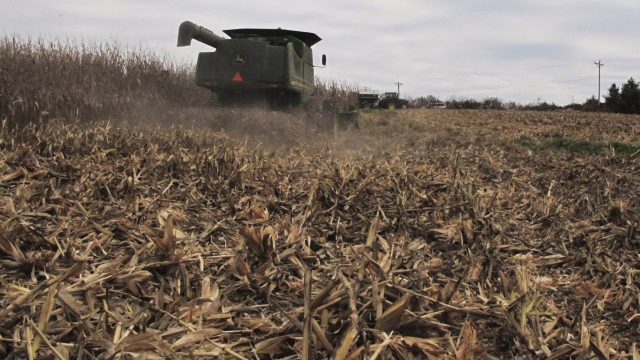Counterproductive Government: Paying Farmers Not To Farm Land They Get Subsidies To Farm

Not so long ago a family member of mine was having problems. You see, she was on a lot of prescribed medication, and nothing seemed to be working. It turns out, she was on way too much medication.
She started taking one prescription to treat a specific malady, but when that medication produced side effects more medication was prescribed to treat those. And when the medication aimed at treating the side effects produced side effects of their own, even more medication was layered on.
It had spiraled out of control. Finally, with the help of a new physician, she got things straightened out and her medicine intake narrowed down to only what was truly needed.
I thought about that situation when I read this week’s column from the former Grand Forks Herald publisher Mike Jacobs.
[mks_pullquote align=”right” width=”300″ size=”24″ bg_color=”#ffffff” txt_color=”#000000″]Jacobs would have us create taxpayer-funded incentives aimed at getting farmers not to farm land that they’re only farming because of other taxpayer-funded incentives.[/mks_pullquote]
Jacobs is passionate about wildlife and conservation, and was disappointed when a ballot measure diverting huge sums of oil tax dollars into a conservation trust fund (Measure 5) failed miserably at the ballot. But he sees a path forward for dealing with conservation needs.
According to Jacobs, we have less conservation acres because new government crop insurance programs have taken the risk out of putting marginal lands into production. Lands that had previously been left fallow and thus served as habitat. Jacobs doesn’t mention other government policy such as the Renewable Fuels Standard which have manufactured demand for ethanol crops through mandates, thus distorting the markets.
“Instead of a constitutional amendment directing millions of dollars to conservation programs administered by a big new board, North Dakota needs a habitat incentive aimed at landowners, whose individual decisions have the greatest impact on the ground in North Dakota,” Jacobs writes. “The state ought to create a program that rewards landowners for setting aside acres for habitat.”
That seems reasonable way to spend tax dollars on conservation, if we are to spend any at all, but consider the context.
Jacobs would have us create taxpayer-funded incentives aimed at getting farmers not to farm land that they’re only farming because of other taxpayer-funded incentives.
It’s sort of like how we taxpayers, until 2014, not only footed the bill for subsidies to tobacco farmers but also paid for extensive and expensive government programs aimed at getting people to stop using tobacco products.
I can understands Jacobs’ passion for conservation, but what I don’t understand is the call for more government programs to fix the side effects of other government programs.
If market-distorting government policies are creating a situation where farmers are planting unprofitable land, either because they are protected from losses or because ethanol crop prices making even marginal yields ok, then reform those policies.
Don’t compound the problem with more government.




